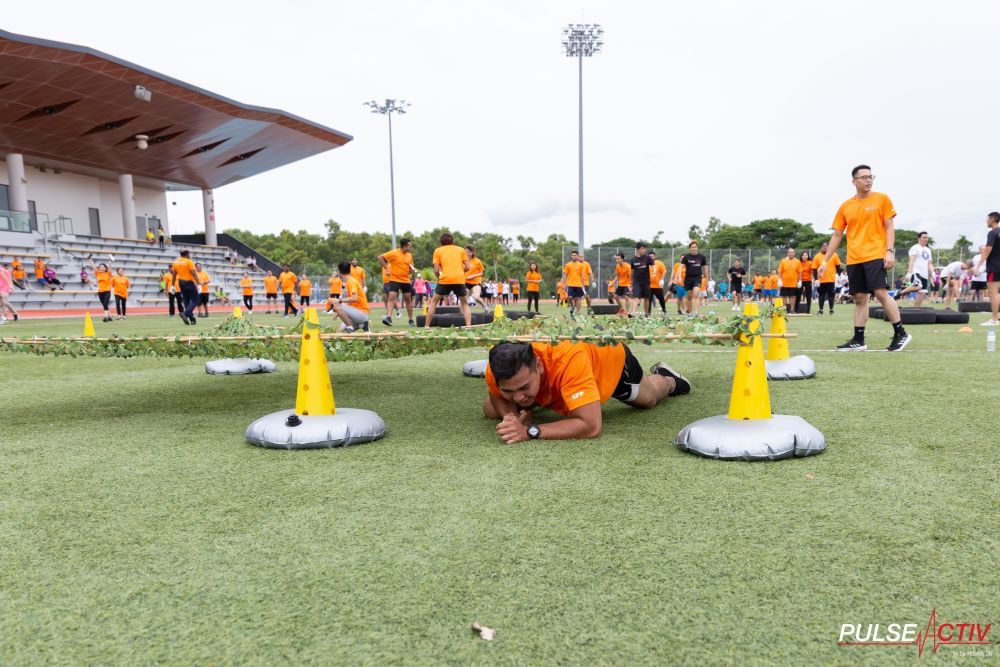Warnings for When Planning an Outdoors Team Building Event
Organizing an outdoor team building event can be a fantastic way to enhance teamwork, communication, and morale. However, it comes with its own set of challenges and potential pitfalls. Here are some crucial warnings to consider to ensure your event is successful and enjoyable for all participants.
1. Weather Conditions
Unpredictability: The weather is one of the biggest variables in planning an outdoor event. Sudden rainstorms, extreme heat, or unexpected cold can derail your plans, making the event uncomfortable or even dangerous for participants.
Preparation: Always have a backup plan, such as an indoor venue or tents, and ensure participants are informed about potential weather changes. Provide guidelines on appropriate clothing and gear for varying weather conditions. Consider having weather alerts set up and keeping a close eye on forecasts in the days leading up to the event.
2. Safety Concerns
Physical Hazards: Outdoor environments can present physical risks such as uneven terrain, slippery surfaces, and potential wildlife encounters.
Risk Assessment: Conduct a thorough risk assessment of the location and activities planned. Ensure all participants are aware of the potential hazards and provide safety briefings and necessary equipment. Have safety measures and protocols in place, such as marked safe zones and clearly defined boundaries.
3. Health Issues
Participant Health: Outdoor activities can be strenuous, and not all team members may be in the same physical condition. Overexertion, dehydration, and sunstroke are common issues that can arise.
Health Screenings: It’s important to know the health status of your participants. Consider asking for medical information and ensure you have first aid supplies and trained personnel on hand. Encourage participants to communicate any health concerns they may have in advance.
4. Accessibility
Inclusivity: Not all outdoor locations are accessible to everyone, particularly those with disabilities. Uneven ground and lack of proper facilities can exclude some team members.
Site Selection: Choose a venue that is accessible to all team members, ensuring there are adequate facilities such as ramps, restrooms, and seating areas. Ensure the chosen activities can be modified to accommodate everyone.
5. Environmental Impact
Eco-Friendliness: Outdoor events can have a significant impact on the environment, from littering to disturbing local wildlife.
Sustainability: Plan your event with sustainability in mind. Use eco-friendly materials, ensure proper waste disposal, and respect the natural surroundings. Encourage participants to leave no trace and to be mindful of their environmental footprint.
6. Logistics and Transportation
Coordination Challenges: Coordinating transportation to and from the event location can be complicated, especially if the site is remote.
Transportation Plan: Arrange reliable transportation options and ensure clear communication about meeting points and schedules. Consider carpooling or providing shuttle services to minimize logistical issues. Have contingency plans in case of transportation delays or issues.
7. Permits and Regulations
Legal Requirements: Many outdoor venues require permits for events, and there may be specific regulations to follow. Failure to comply can result in fines or cancellation of the event.
Compliance: Research and obtain any necessary permits well in advance. Familiarize yourself with local regulations to avoid fines or event cancellation. Ensure all activities comply with legal and environmental guidelines.
8. Communication and Coordination
Information Gaps: Miscommunication or lack of information can lead to confusion and frustration among participants.
Clear Instructions: Provide detailed information about the event schedule, location, activities, and any required equipment. Use multiple communication channels to ensure everyone is well-informed. Have a clear point of contact for any questions or issues that arise.
9. Budget Overruns
Unexpected Costs: Outdoor events can incur unexpected costs, from equipment rental to emergency expenses. These can quickly add up and blow your budget if not carefully managed.
Budget Planning: Create a detailed budget that includes a contingency fund for unforeseen expenses. Track your spending closely to stay within budget. Plan for all potential costs, including permits, insurance, and last-minute changes.
10. Team Dynamics
Interpersonal Conflicts: Team building activities can sometimes exacerbate existing conflicts or create new tensions. These can disrupt the event and affect team morale.
Conflict Management: Be prepared to manage conflicts diplomatically. Choose activities that promote cooperation and positive interaction, and have strategies in place to address any issues that arise. Consider having a neutral facilitator to manage dynamics and encourage positive engagement.
11. Participant Engagement
Lack of Interest: Not all team members may be equally enthusiastic about outdoor activities. Disengaged participants can detract from the overall experience.
Activity Selection: Select a variety of activities to cater to different interests and fitness levels. Engage participants in the planning process to ensure they feel invested in the event. Provide opportunities for feedback to ensure activities are enjoyable and inclusive.
12. Emergency Preparedness
Unforeseen Emergencies: Emergencies can occur, from medical issues to severe weather. These can quickly escalate if not properly managed.
Emergency Plan: Have a comprehensive emergency plan in place. Ensure all participants know the emergency procedures and have access to emergency contacts and first aid resources. Conduct a safety briefing at the start of the event and designate roles for emergency response.
13. Equipment and Supplies
Shortages: Running out of necessary supplies or having faulty equipment can hinder the event. This can lead to frustration and a less enjoyable experience.
Inventory Management: Create a detailed checklist of all required equipment and supplies. Conduct a thorough inventory check before the event and ensure you have extras of critical items. Have a plan for quickly replacing or repairing any faulty equipment.
By being aware of these potential warnings and taking proactive steps to address them, you can ensure your outdoor team building event is safe, enjoyable, and successful. Planning ahead and considering the diverse needs and preferences of your team will create a positive and memorable experience for everyone involved.
To head back to read another article in our blog, click here.

